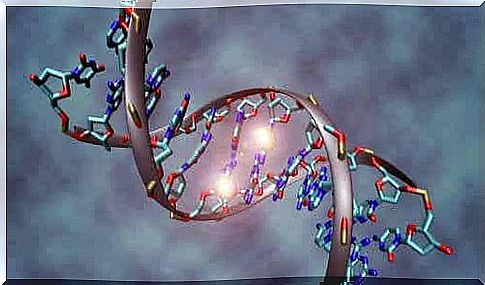Do You Know About The Genetic Basis Of Cancer?

It is important to know the genetic basis of cancer, even if this disease depends on other factors, including the environment, health and lifestyle.
Scientific advances in understanding the genetic basis of cancer are likely to lead to the development of new treatments and methods for early detection. This will facilitate the adaptation of treatments to the disease.
The evolution of methods and studies of genetic analysis has provided specialists with information that allows them to know exactly which genes are linked to a particular type of cancer. The most notable discovery was the BRCA1 / BRCA2 gene, associated with hereditary breast cancer.
How does cancer develop?
The set of cancer-related diseases have a common origin, in which various changes in cell repair mechanisms play an important role. The appearance and accumulation of many genetic changes could promote the development of cancer cells. These malignant cells affect the control of the cell cycle, facilitating the onset of cancer.
Genetic information is obtained by analyzing biological DNA samples. But a change in the DNA sequence of a certain gene does not necessarily mean that you will develop cancer.
You can undergo a genetic test at any stage of life and then compare your results with those of other relatives. This allows you to assess the risk of suffering from a certain type of cancer.

What are the characteristics of hereditary cancer?
Currently, specialists have made progress in screening programs for colon and breast cancer. But these screening programs are not enough. In addition, people need to become aware of preventive measures.
To properly assess the characteristics of hereditary cancer, specialists take into account certain variables, which are related to the patient himself or his family members. If some of these variables occur in the person who has been tested, the doctor may conclude that they have hereditary cancer.
Patient-related variables
- The presence of several main tumors in the same organ or in different organs
- Bilateral primary tumors
- Receiving the diagnosis when you are under normal age
- Tumors are associated with birth defects or hereditary precursor lesions
Variables related to the patient’s family
- Two or more first-degree relatives with rare tumors
- A first-degree relative with the same tumor or a related tumor
- Two or more relatives with tumors in the same region
- Three or more relatives from two generations with tumors in the same area
- Two or more first-degree relatives with tumors associated with a known familial cancer syndrome
What is genetic counseling?
The purpose of genetic counseling is to provide both patients and their relatives with relevant information about the results of the genetic study.
The process has the following phases:
- First of all, the study of the patient’s medical history, but also of his relatives
- Collection and analysis of genetic information
- Reporting patient results
- Health education
- Decision support
- Further medical consultation
Carrying out a genetic study gives you the option to take concrete measures to improve your health and prevent any disease. In addition, a great advantage of genetic studies is that they allow the diagnosis of cancer in the early stages, increasing the chances of cure.

The genetic basis of cancer is intensively analyzed
Genetic analyzes of cancer began with the study of high-risk families. There have been numerous cases of cancer in these families. This is why specialists have begun to study the genes that could be associated with the disease.
Specialists take into account in these analyzes the total number of family members, the number of members who provided a DNA sample, the age of onset of the disease or the number of cases in the family. Another type of genetic analysis that specialists can do is a genome-wide association study (GWAS).
conclusions
People who inherit a specific variant in their DNA have a genetic predisposition to the development of a certain type of cancer. At this time, it is possible to detect these variants before the disease starts.
In short, the scientific responsibility to be able to identify the risk of cancer also requires a certain human commitment, which accompanies the process of those who decide to follow genetic counseling.









